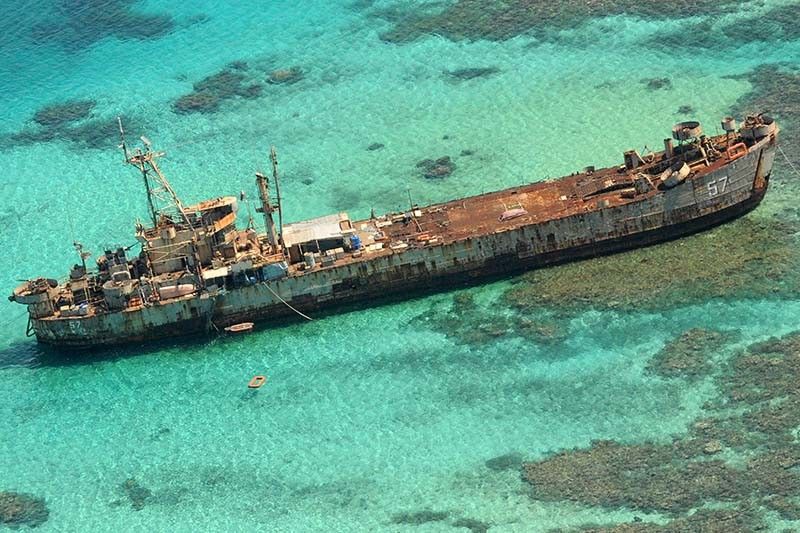Addressing urgent challenges by making better choices

Attracting investment to create more jobs for Filipinos and drive the country’s economic recovery. Increasing our climate resilience and addressing climate change. Defending our rights in the West Philippine Sea. Fighting the corruption and disinformation that are corroding democracy.
These are but a few of the urgent challenges that the Philippines faces. They are also themes that our think tank, the Stratbase ADR Institute, tackled across five sessions of its Pilipinas Conference 2021.
Over the last week, the Pilipinas Conference brought together thought leaders from the government, business sector, academe and civil society to discuss and share their insights on five topics: (1) economic recovery; (2) trade and investments; (3) environmental sustainability; (4) defense and security and (5) governance.
With over fifty speakers and several thousand participating over the five-day summit, the discussion was rich and diverse. And while indeed there were more than enough ideas to fill multiple columns, here are key takeaways from the conference that I thought must be shared,
The first is that the private sector has a critical role in reducing poverty by creating new jobs, livelihood opportunities, and community and stakeholder-oriented initiatives. In his remarks on sustaining economic recovery during the conference’s opening session, Jaime Augusto Zóbel, chairman of the Ayala Corp., said that not only does the private sector play an important role, but that “the task at hand really requires our collective commitment. All of us, to harness our sectors’ unique and complementary wisdom, resources, and energy to adequately address the societal pain-points towards national recovery and growth.”
The second is that the pace of our economic recovery has much to do with having investment-friendly policies. For instance, Department of Trade and Industry Secretary Ramon Lopez said that “for the Philippines, we recognize that the trajectory of one’s recovery would highly depend on the policies and programs adopted and implemented in response to the pandemic.”
“Among the critical policies and programs would be keeping the markets open for trade and investments, ensuring the smooth flow of goods and services -- our supply chain -- effective containment of the pandemic, delivery of massive vaccination which we are currently doing, and easing of mobility restrictions,” he added. The secretary also called for the reopening of borders and travel, enhanced trade, and the multilateral approach for vaccine production, procurement, and distribution.
The third is the pressing need further to raise awareness of the consequences of climate inaction. Our speakers discussed the urgent need for clean energy transition, circular economy models, sustainable urban development and transport models, and productive and regenerative agriculture. In his remarks, Bangko Sentral ng Pilipinas Governor Benjamin Diokno also emphasized the need for continued effort to engage all stakeholders, saying further that “we recognize that the environmental and social risks are not just business risks, but risks that affect everyone and the future generations to come.”
The fourth key takeaway is the strategic benefits of a multilateral approach to challenges faced in the West Philippine Sea. According to Department of National Defense Secretary Delfin Lorenzana, “as the Indo-Pacific region is set to face more uncertainties, there is more incentive for countries to band together, especially those with mutual interests. While resolving territorial disputes and balancing the geopolitical landscape, nontraditional security threats present an impetus for cooperation.”
The Philippines, therefore, should take a more active role in promoting multilateralism. It should lead and call on ASEAN to be more proactive in asserting the interests of its member-states, instead of being a passive stakeholder,” he added.
The fifth is the renewed calls for more transparent and accountable governance. The last session of the conference discussed the corrosive effects that strongman populism and COVID-19 corruption have had on the country’s democratic institutions and the importance of the upcoming national elections. Former Justice and Ombudsman Conchita Carpio-Morales posed the questions, “If we are to look at how our democratic ideals of transparency, accountability, empowerment, participation, and rule of law over the last years, can we say fairly that they have not heavily waned?”
Indeed, the country finds itself approaching a crossroads next year. In the words of Carpio-Morales, “the result would be a possible return to a regime with autocracy tendencies, could be a reinstallation to power those who by history have already bastardized the democracy and guilty covers of the country or it could also be a restoration of good governance and democracy.”
Undeniably, the importance of these takeaways is magnified when viewed with the upcoming elections in mind. As early as now, those who aspire to lead the country are busy attempting to win over Filipino voters.
Some promise integrity and better governance, that fighting corruption will be a top priority. Some promise better economics, reviving small and medium businesses and providing jobs for citizens. And others promise greatness, with grand but broad statements on what will and will not happen in a short amount of time.
Candidates appealing to the fantasy of greatness are not uncommon during the campaign period. But the leaders who promise the “great” may not always assure the “good.”
So although Filipinos are already confronted with great economic, political, environmental, and security challenges, it is essential that we choose good leaders since a vote for genuine and good leaders will ripple across other facets of life.
Paco Pangalangan is the executive director of think tank Stratbase ADR Institute.
- Latest




























